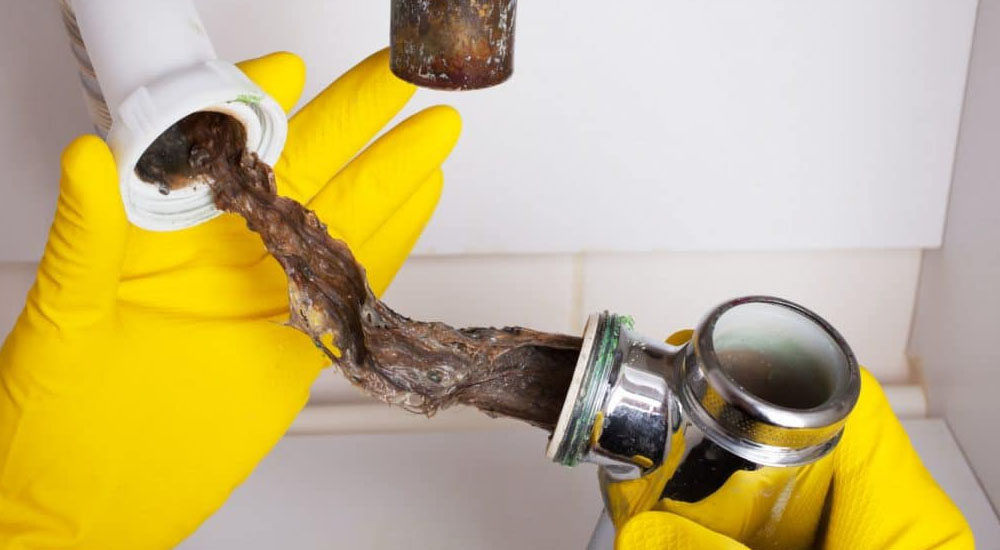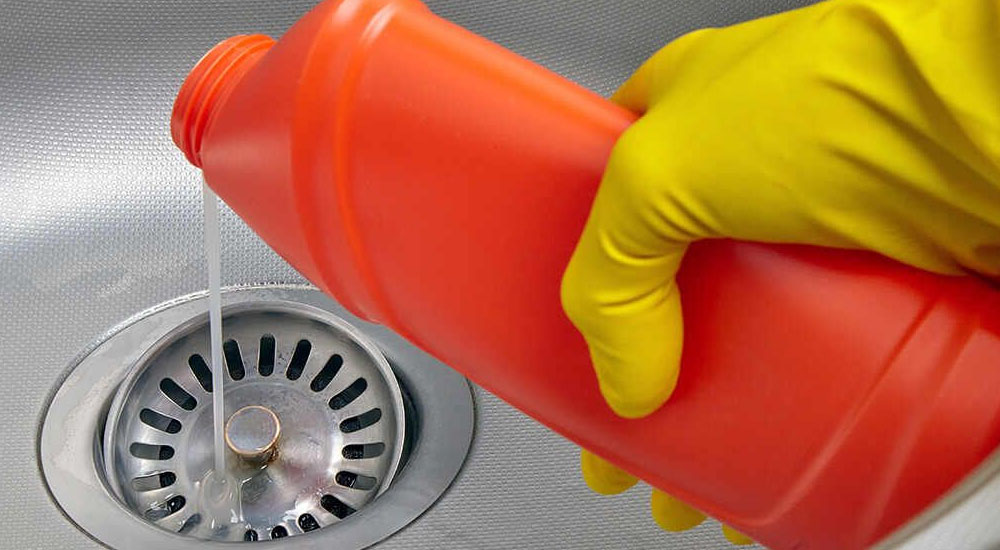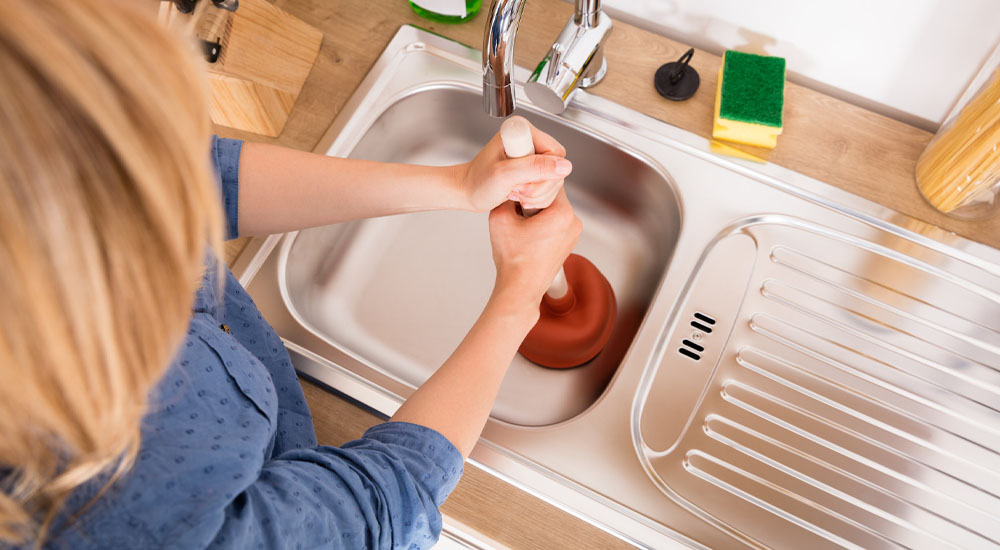Clogged drains. Just the thought of them can send shivers down any homeowner’s spine. The gurgling sounds, the slow drainage, the unpleasant odors – it’s a homeowner’s worst nightmare.
But fear not, for knowledge is power! Understanding how to prevent clogged drains in your home can save you from plumbing woes and costly repairs.
This comprehensive guide will equip you with the knowledge and tools to keep your drains flowing freely.
The Enemy Within: Identifying Common Causes of Clogged Drains
Before we delve into the preventative measures, let’s shine a light on the culprits behind those frustrating blockages. Knowing your enemy is the first step to victory! Hair, grease, food scraps, soap scum, and even foreign objects like jewelry or toys can accumulate in your pipes over time, leading to restricted water flow and eventually, a complete standstill. By understanding how to prevent clogged drains in your home, you’re taking a proactive stance against these common household foes.
Hair Today, Gone Tomorrow: Winning the Battle Against Hair
Hair is a major offender, particularly in bathroom drains. Every strand that escapes your brush or comb can contribute to a growing clump in your pipes, trapping other debris and forming a stubborn blockage. But don’t despair! Here’s your arsenal against hair-related clogs:
- Drain Strainers: These simple, inexpensive tools are your first line of defense. Place them over your shower and bathtub drains to catch hair before it has a chance to wreak havoc.
- Regular Cleaning: Don’t let those strainers become clogged themselves! Remove and clean them regularly, disposing of the collected hair in the trash.
- Brushing and Combing: Be mindful of where you brush and comb your hair. Doing so over a sink or trash can can help minimize the amount of hair that ends up down the drain.

Grease: The Drain’s Arch-Nemesis
Grease and oil may seem harmless when they’re hot and liquid, but as they cool, they solidify and cling to the inside of your pipes. This sticky layer acts like a magnet for other debris, creating a recipe for disaster. Here’s how to keep grease at bay:
- Never Pour Grease Down the Drain: This is a cardinal rule of drain maintenance! Instead of pouring grease down the drain, collect it in a container – an old coffee can or jar works well – and dispose of it in the trash once it solidifies.
- Wipe Down Greasy Dishes: Before washing greasy pots and pans, wipe them down with a paper towel to remove excess grease. This simple step can significantly reduce the amount of grease that enters your drains.
- Hot Water Flush: After washing greasy dishes, flush the drain with hot water to help prevent grease from solidifying in your pipes.
Food Waste: The Garbage Disposal’s Limits
Garbage disposals are handy tools, but they’re not meant for everything. Overloading your disposal with food waste can lead to clogs and even damage the appliance. Here’s how to use your disposal responsibly:
- Small Amounts: Feed food scraps into the disposal gradually, allowing it to grind each piece before adding more.
- Avoid Starchy and Fibrous Foods: Starchy foods like pasta and rice can expand in your pipes, while fibrous vegetables like celery and corn husks can wrap around the disposal blades. It’s best to compost these items or dispose of them in the trash.
- Run Water: Always run cold water while using the garbage disposal and for a few seconds after to help flush away food particles.
Soap Scum: The Silent Clogger
Soap scum is a sneaky culprit. It builds up slowly and steadily, combining with hair and other debris to form stubborn clogs. Here’s how to combat soap scum:
- Proper Ventilation: Ensure good ventilation in your bathroom to help prevent excess moisture, which contributes to soap scum buildup.
- Regular Cleaning: Wipe down shower walls and bathtub surfaces after each use to prevent soap scum from accumulating.
- Drain Cleaners: Use a drain cleaner specifically formulated to dissolve soap scum. You can also try natural solutions like baking soda and vinegar.

5. Foreign Objects: Keeping Unwanted Guests Out of Your Drains
It may seem obvious, but small objects can easily slip down the drain, especially in bathroom sinks. Be vigilant about keeping these items out of harm’s way:
- Jewelry: Remove jewelry before washing your hands or face.
- Toys: Keep small toys away from sinks and bathtubs.
- Cotton Swabs and Balls: These belong in the trash, not the drain!
Toilet Talk: Flush with Care
Your toilet is not a trash can! Flushing anything other than toilet paper can lead to clogs and plumbing problems. Here’s what you need to know:
- Toilet Paper Only: Only flush toilet paper designed to break down in water.
- No Wipes: Even wipes labeled “flushable” can cause clogs. Dispose of them in the trash.
- Feminine Hygiene Products: These should always be disposed of in the trash.
Regular Maintenance: The Key to Happy Drains
Prevention is the best medicine! Regular drain maintenance can help keep clogs at bay and ensure your drains are flowing smoothly. Here’s a simple routine:
- Weekly Hot Water Flush: Once a week, flush all your drains with hot water for a few minutes. This helps to melt away any grease buildup and keep things moving.
- Monthly Drain Cleaning: Once a month, use a natural drain cleaner or a mixture of baking soda and vinegar to help break down any remaining debris. Pour ½ cup of baking soda down the drain, followed by ½ cup of vinegar. Let it sit for 30 minutes, then flush with hot water.
When to Call in the Professionals
Sometimes, despite your best efforts, clogs happen. If you’ve tried preventative measures and home remedies and are still experiencing frequent clogs, it’s time to call in the professionals. A plumber can identify any underlying issues, such as pipe damage or tree root intrusion, and provide effective solutions.
Chemical Drain Cleaners: Use with Caution
While chemical drain cleaners can be effective in clearing clogs, they should be used with caution. These harsh chemicals can damage your pipes over time and are harmful to the environment. If you choose to use a chemical drain cleaner, follow the instructions carefully and wear protective gear.
Water Softeners: A Helping Hand for Your Drains
Hard water can contribute to mineral buildup in your pipes, which can lead to clogs. If you have hard water, consider installing a water softener to help reduce mineral deposits and keep your drains flowing freely.
Know Your Plumbing System
Familiarize yourself with your home’s plumbing system. Knowing the location of your main shut-off valve can be helpful in case of a plumbing emergency. Also, be aware of the age and condition of your pipes. Older pipes may be more susceptible to clogs and leaks.
Educate Your Household
Make sure everyone in your household understands the importance of proper drain care. Encourage them to follow the tips outlined in this guide to help prevent clogs and keep your plumbing system healthy.
By following these tips and making drain maintenance a regular part of your household routine, you can significantly reduce the risk of clogged drains and enjoy a worry-free plumbing experience. Remember, prevention is always better (and cheaper!) than dealing with a plumbing emergency.

